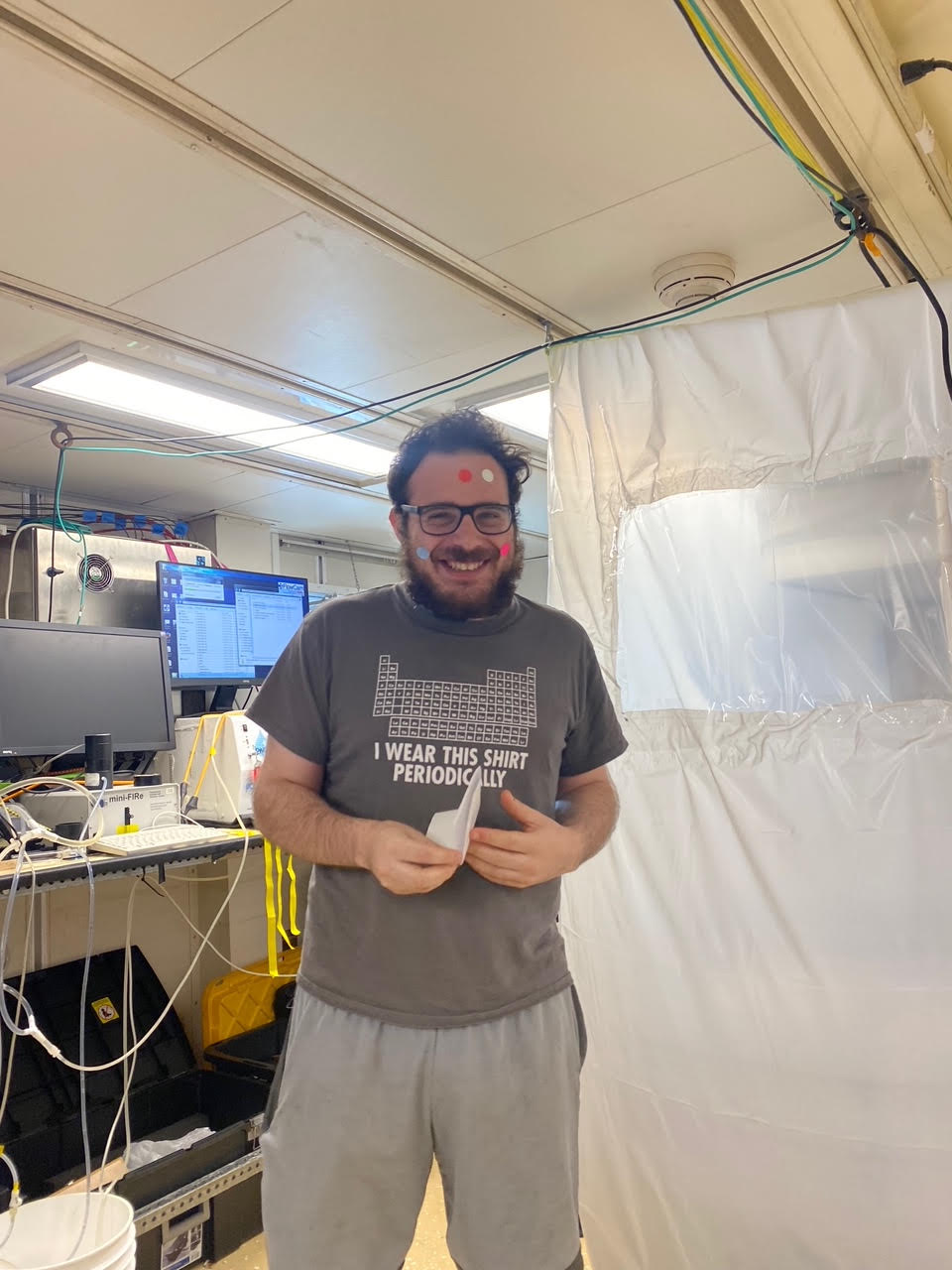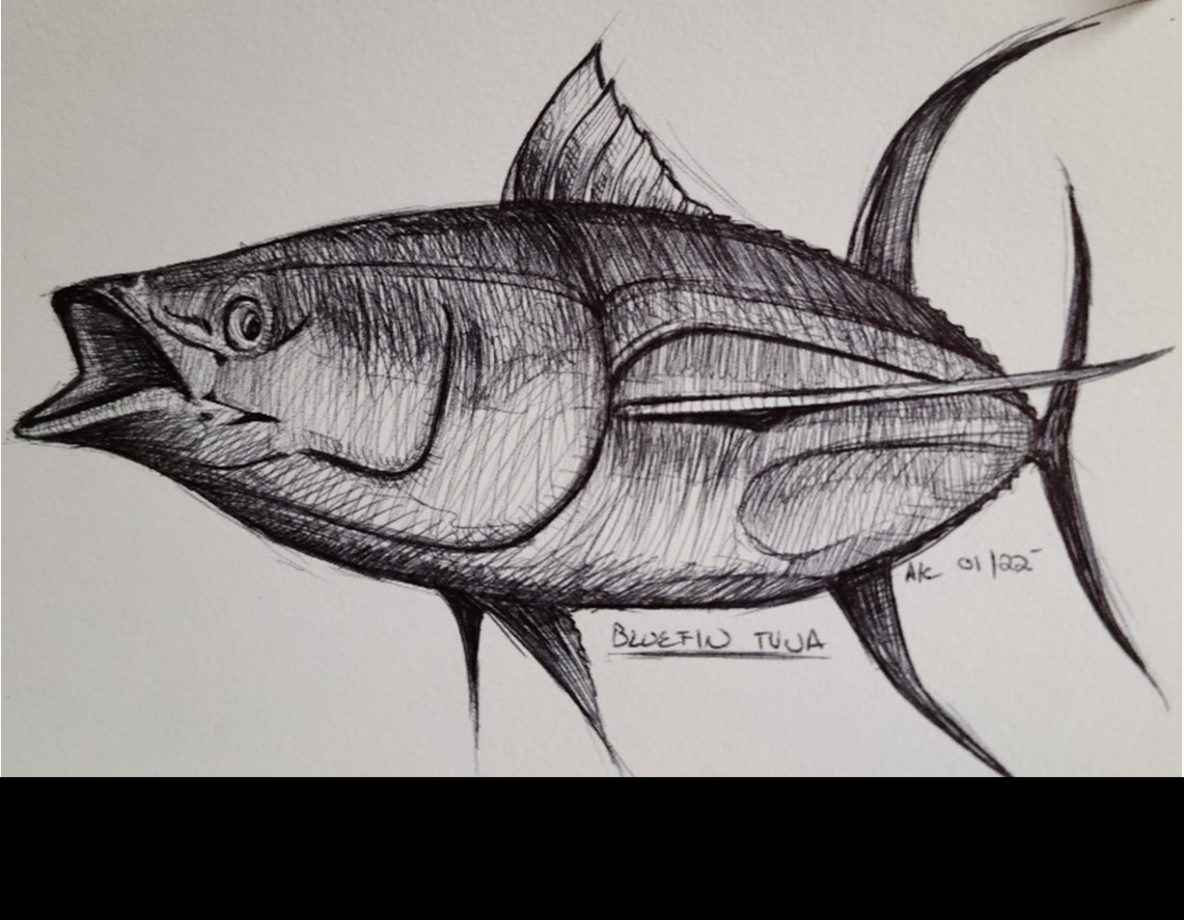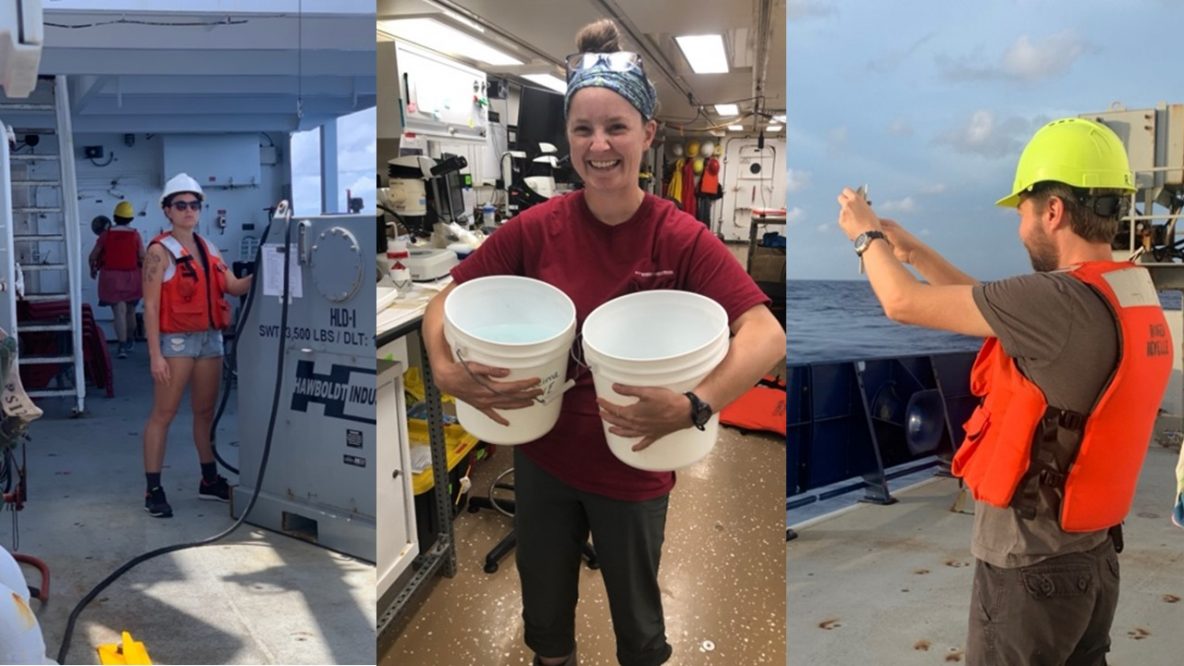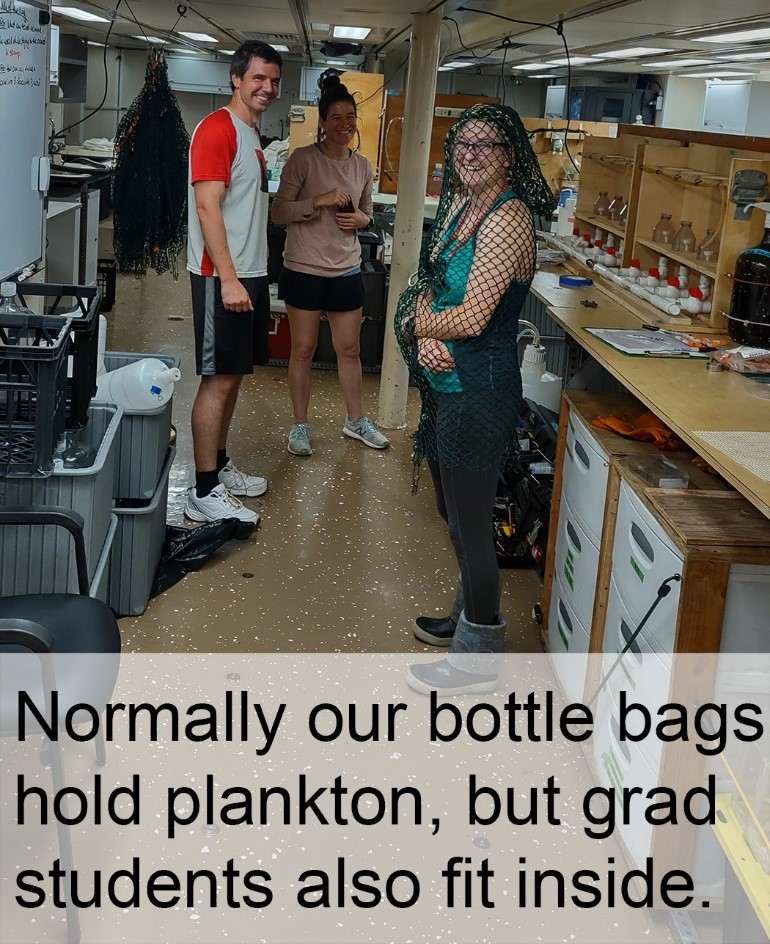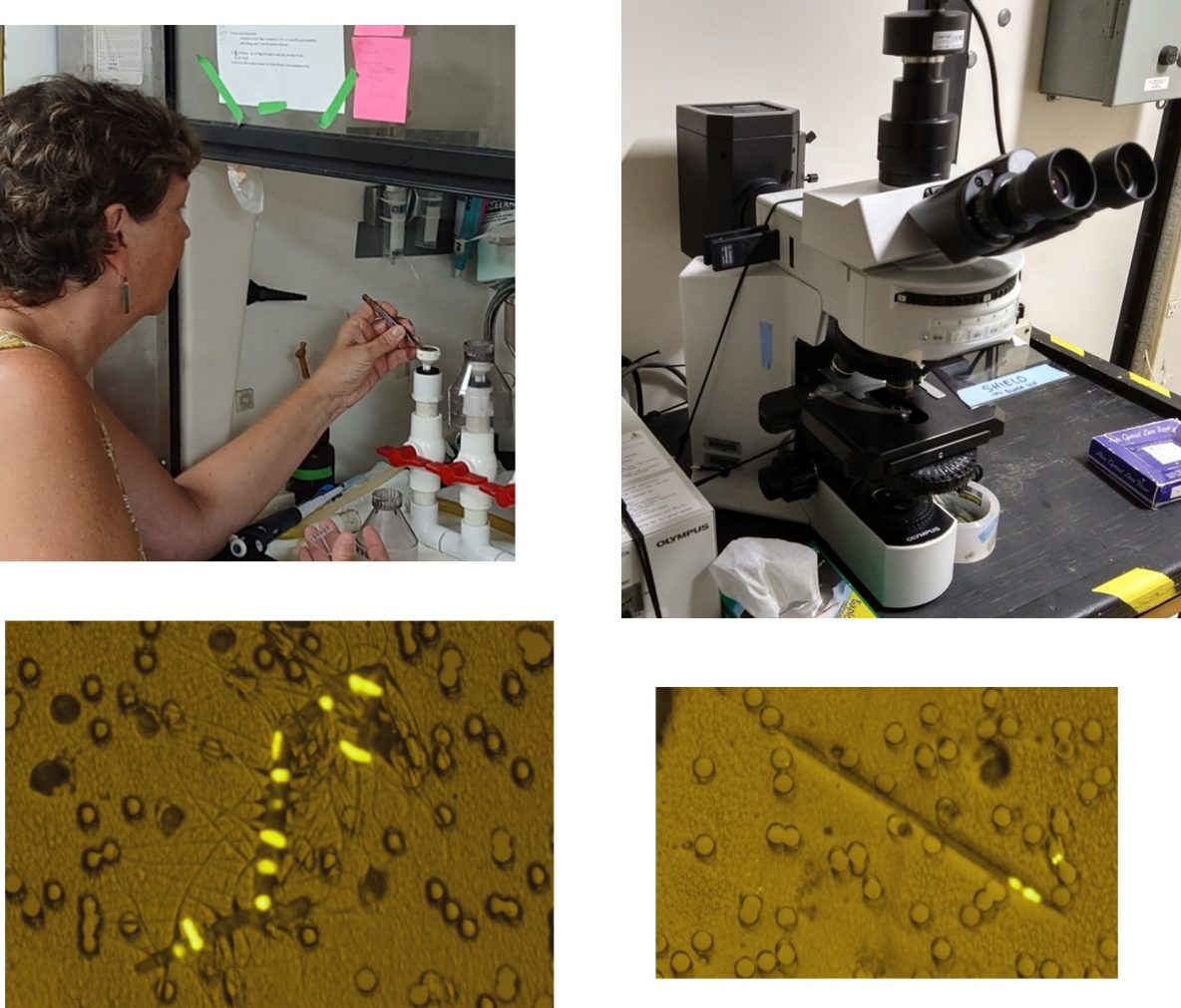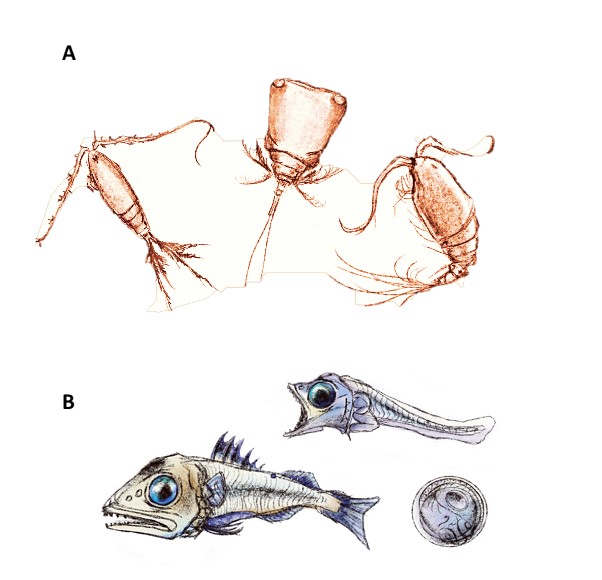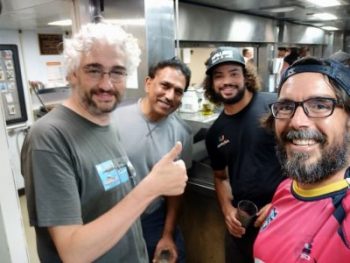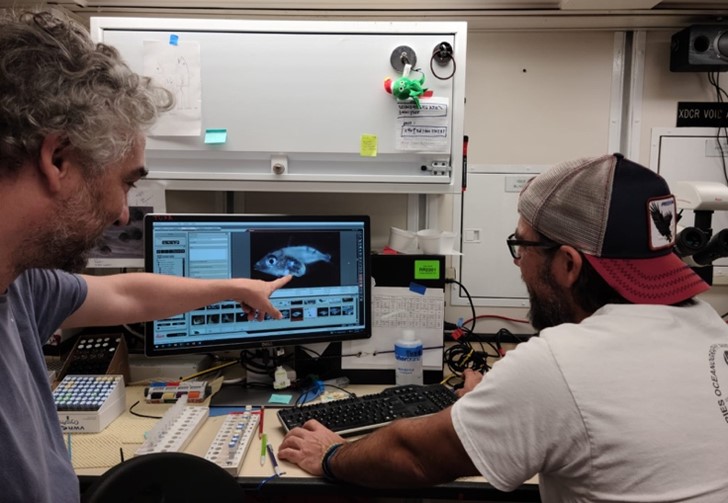From FSU to the India ocean, I Jared Rose am here to measure the N2 fixation within the Argo Basin. All biological life requires nitrogen in order survive but unfortunately for the organisms that live here the region is oligotrophic which means there is very little of nutrients available to them. These nutrients are typically nitrate (NO3) and ammonium (NH4+) … Read More
Southern Bluefin Tuna research (Estrella Malca, RSMAS/CIMAS)
Why is tuna research important? Although southern bluefin tuna (SBT) are certainly prized in the culinary world, they are also vastly valued in the commercial industry. Unfortunately, as a result, SBT are over exploited – and have been for decades, which means that the levels at which these tunas were fished were not sustainable long-term. Managing bluefin tuna stocks is … Read More
I wanna be where the nets are (Grace Cawley, SIO)
“Under the sea, under the sea…everything is better”. Ariel had it right, and some would dare to say zooplankton agree. Yet under the sea is where they are harder to study. As sea-faring zooplankton ecologists, we have figured out a way to bring our zoop friends out from under the sea, where we think it’s better to be in our … Read More
Lagrangian Drifters (Michael Stukel, FSU)
The FSU Plankton Ecology Lab is out in force on this cruise, with Dr. Stukel leading a team of three grad students (Natalie Yingling, Christian Fender, and Opeyemi Kehinde). Our goal is to understand the interactions between marine organisms and global carbon and nitrogen cycles and our creed is that we can sleep when the cruise is over (or in … Read More
GO WITH THE FLOW! (Karen Selph, UH)
Phytoplankton, the single-celled plants of the sea, are the basis of the oceanic food web – and every organism that lives in the sea ultimately depends upon the photosynthesis of phytoplankton to survive! This includes the Southern Bluefin Tuna – while their first feeding stages may only DIRECTLY eat few phytoplankton, what they DO eat depends upon phytoplankton as a … Read More
A Zooplankton Ecologist/Artist’s first time at sea (Claudia Traboni, ICM-CSIC)
My name is Claudia Traboni, I’m a PhD student in marine plankton ecology. I was born in Italy but I have spent the years of my doctoral training working at the Institute of Marine Science (ICM-CSIC) in Barcelona (Spain). My research focuses on the trophic interaction between zooplankton and mixotrophs. These unicellular planktonic organisms are able to survive by autotrophic … Read More
How COVID-19 almost shattered my veterans confidence (Joaquim Goes, Lamont Doherty)
I often brag about sailing on several research cruises and in several oceans. I take pride in calling myself a “veteran” of the seas, a distinction that affords one the confidence of being able to work effortlessly on board any research vessel, however challenging the circumstances are. My last cruise was along the east coast of USA, and it ended … Read More
Zooplankton on the BLOOFINZ voyage (Claire Davies, CSIRO)
I came on this voyage to help put the Z in BLOOFINZ. Our long-term plankton surveys in Australia use the Continuous Plankton Recorder (CPR) to cover large spatial and temporal scales around the coastline of Australia, and a Heron drop net for monthly sampling at a finer resolution at 7 National Reference Stations. Note the lower number of samples taken … Read More
From Raúl Laiz Carrión and José María Quintanilla (IEO-CSIC)
We are Dr. José María Quintanilla and Dr. Raúl Laiz Carrión, researchers from the Fish Larval Ecology group at the Málaga Oceanographic Center, Spanish Institute of Oceanography (IEO-CSIC) integrated within the Spanish National Research Council (CSIC). During the past decade, our group focused on trophic ecology on early life stages of small and large marine pelagic fishes such as, sardine, … Read More
- Page 2 of 2
- 1
- 2

